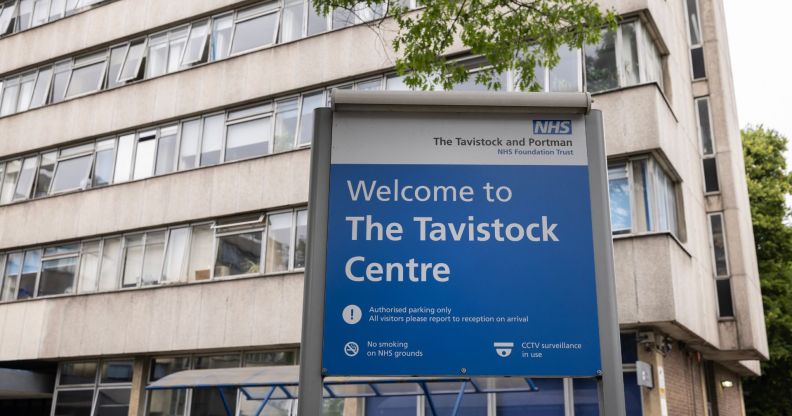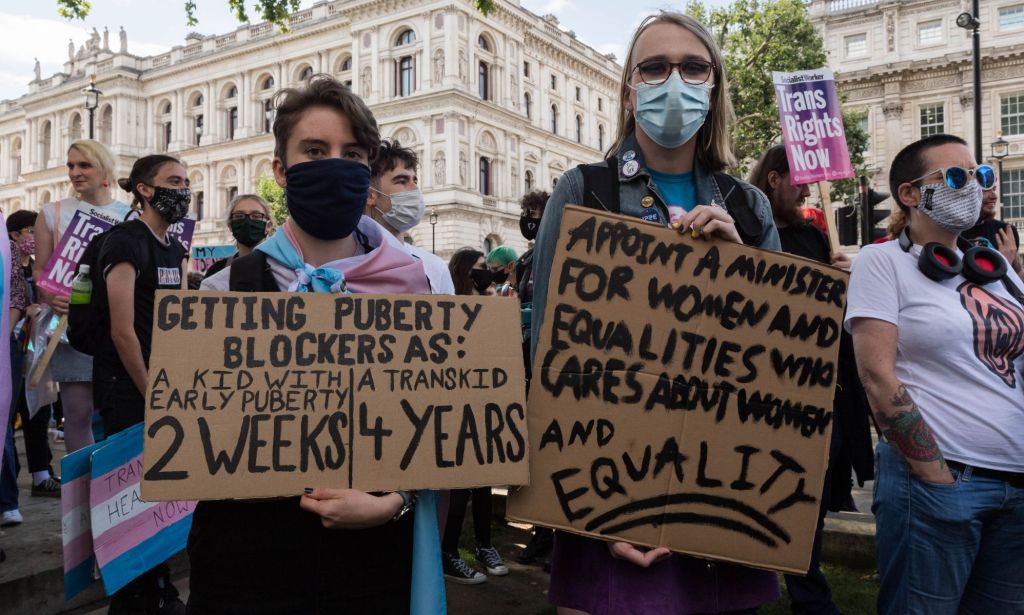Leaked emails show concerns over closure of Tavistock gender identity clinic

Leaked emails reveal concerns over NHS gender identity clinic The Tavistock Centre (Dan Kitwood/Getty Images)
Leaked emails have revealed concerns about current and future patient care ahead of the country’s only gender identity clinic for young people, at the Tavistock Centre, closing its doors in a matter of days.
According to emails seen by BBC News, hospital executives have voiced concerns about cancelled appointments and a lack of information about future care.
NHS England has claimed that the closure is a “complex piece of work”, but that patients would see a “continuity of care” afterwards.
The Gender Identity Development Service (GIDS), run by the Tavistock and Portman NHS Foundation Trust, was established in 1989 as NHS England’s sole provider of care for trans and gender-questioning young people. It’s due to shut permanently on Sunday (31 March).
In July 2022, it was announced that the clinic would close by the Spring of the following year and replaced by two new regional hubs, one in London, as The Tavistock is, and the other in the north of England, with the hope of more to follow. The closure was delayed until March 2024 because of the “complexity” of the project.
The move to close the Tavistock Centre was announced after an independent review led by Dr Hilary Cass said a “fundamentally different” model of care for trans young people was needed, and calling for that care to be more easily accessible.
The transition from GIDS to the regional hubs has not been without difficulty, however, with a report in February 2023 finding that there were no locations, staff or services in place for the move, leaving trans young people and their families unsure of where to get gender-affirming care.
According to the leaked emails seen by BBC News, staff at GIDS reportedly do not have “enough details” about the new services set to replace it, with one message saying cancelled appointments could pose a “risk” to some patients.
GIDS director Dr Polly Carmichael reportedly wrote in an email earlier this month that there had been “unexpected” cancellations of appointments at endocrinology clinics, and that the process had been “poorly managed”.
The email reportedly said: “I know this is upsetting but [I] hope we can contain and support any families who make contact.”

In a separate email exchange in November, also seen by BBC News, clinicians wrote to the chief executive of the Tavistock and Portman NHS Foundation Trust, Dr Michael Holland, claiming they had “insufficient information” for patients during the transfer from GIDS to the new services.
“The situation is now having a significant impact on the safety and well-being of the families we are supporting,” they are said to have warned.
Dr Holland reportedly replied: “Your concerns are extremely important… we are in dialogue with [NHS England] on these very points and are extremely worried that we need clarity. It is far from an ideal situation.”
Although a family told the BBC they had been left “completely in the dark”, NHS England claimed patients and their families had all received letters outlining how their care will change. The letters advised those with urgent concerns to contact their GP, local mental health crisis teams, or Child and Adolescent Mental Health Services.
There has been a rise in referrals to GIDS in the past 10 years, with more than 5,000 children referred to the clinic in 2021. It was described as “neither safe nor viable” as a centre because of the lengthy waiting periods for gender-affirming care, which were deemed “unacceptable”.
One of the most controversial elements of care provided by GIDS is the use of puberty blockers, and the NHS recently announced that these would no longer be routinely prescribed, with more research required to evidence whether they were “safe or effective”.
However, the BBC quotes sources saying they fear that the part of the new service that gives psychological support to children still taking the puberty blockers will not be fully operational when the service transfers across.
An NHS England spokesperson told PinkNews: “In line with the Cass Review, NHS England took the decision to close the Tavistock and set up a fundamentally different and improved approach to children and young people’s gender services.
“This transition is a complex piece of work which is why we have ensured every family has received a letter informing them of the changes.
“Patients will see continuity of care when the new services come online from April, and all patients waiting will be offered a local mental-health assessment if they want it, with extra national resources provided to ensure the best possible support.”

